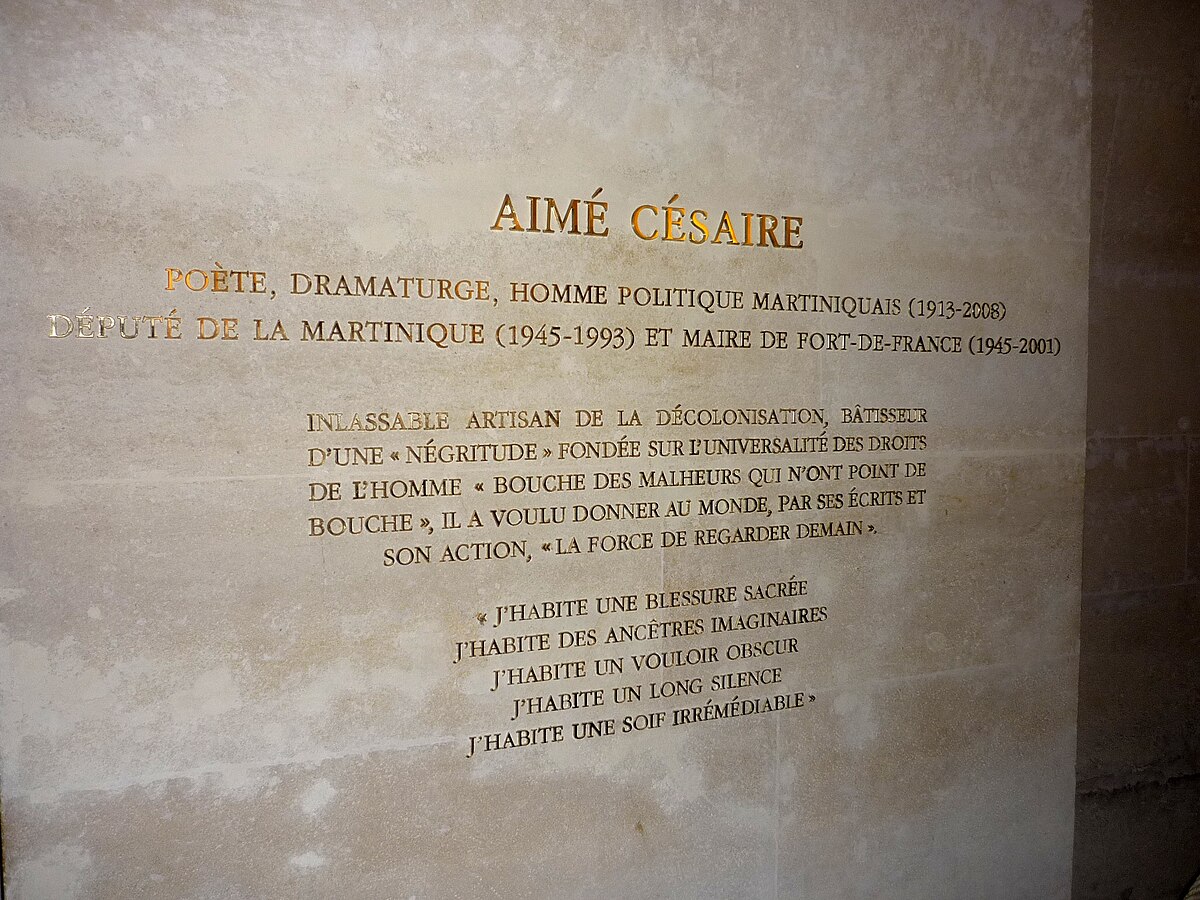Josephine Baker to Be Honored With a Panthéon Burial
Ms. Baker will be the first Black woman to be entombed in the Panthéon in Paris, a symbolic move amid racial tensions in France.

Josephine Baker, who was born Freda Josephine McDonald in 1906 in St. Louis, in Paris in the 1920s.Credit...Agence France-Presse — Getty Images
By Constant Méheut
Aug. 22, 2021
PARIS — Josephine Baker, an American-born Black dancer and civil rights activist who in the early 20th century became one of France’s great music-hall stars, will be laid to rest in the Panthéon, France’s storied tomb of heroes, a close adviser to President Emmanuel Macron said on Sunday.
The honor will make Ms. Baker — who became a French citizen in 1937 and died in Paris in 1975 — the first Black woman and one of very few foreign-born figures to be interred there. The Panthéon houses the remains of some of France’s most revered, including Victor Hugo, Marie Curie and Jean-Jacques Rousseau.
The decision to transfer Ms. Baker’s remains, which are buried in Monaco, comes after a petition calling for the move, started by the writer Laurent Kupferman, caught the attention of Mr. Macron. The petition has garnered nearly 40,000 signatures over the past two years.
Mr. Kupferman suggested that Mr. Macron approved the reinterment “because, probably, Josephine Baker embodies the Republic of possibilities.”
“How could a woman who came from a discriminated and very poor background achieve her destiny and become a world star?” Mr. Kupferman said. “That was possible in France at a time when it was not in the United States.”
Entombment at the Panthéon can be approved only by a president, and Ms. Baker’s reinterment is highly symbolic, coming as France has been convulsed by heated culture wars over its model of social integration, and as gender and raceissues have fractured the country around new political front lines.
The news was first reported by Le Parisien newspaper. The funeral will take place on Nov. 30.
Ms. Baker, born Freda Josephine McDonald in 1906 in St. Louis, started her career as a dancer in New York in the early 1920s before heading to France, where she quickly became a sensation.
She said that she had been motivated to move abroad because of discrimination that she had endured in the United States. “I just couldn’t stand America, and I was one of the first colored Americans to move to Paris,” she told The Guardian newspaper in 1974.
Along with other Black American artists — including the writers Richard Wright and James Baldwin — Ms. Baker said she found in France a freedom that she felt denied in the United States.

Ms. Baker in 1961. During World War II, she served as an ambulance driver and an intelligence agent, earning her medals of honor. Credit...Agence France-Presse — Getty Images
In Paris, Ms. Baker quickly rose to fame and became a fixture in shows at Les Folies Bergères, a famous music hall, dominating France’s cabarets with her sense of humor, her frantic dancing and her iconic songs, like “J’ai Deux Amours,” or “I Have Two Loves.”
But part of her artistic career was also built around stereotyped and erotic dances, like the so-called banana dance. The dances were riddled with racist tropes once associated with Black women and their bodies in a colonial France then fascinated with Black and African arts, prompting some activists at the time to denounce her for fueling those caricatures.
But Pap Ndiaye, a historian who specializes in Black studies, said in 2019 on France Culture radio that Ms. Baker had specifically used the stereotypes in her acts, deriding them as much as she exaggerated them.
“It is this French colonial imaginary world which she will capture and which she will play with, obviously with many nods and much distance, because Josephine Baker is not fooled,” Mr. Ndiaye said.
Ms. Baker later became a passionate civil rights advocate in the United States. She wrote about racial equality, refused to perform in segregated venues and, in 1963, joined the Rev. Dr. Martin Luther King Jr. onstage to speak during the March on Washington.
In recent years, French authorities have responded to growing calls to inter more women in the Panthéon, where the vast majority of those buried are men. In 2014, Germaine Tillion and Geneviève de Gaulle-Anthonioz, who fought in the French Resistance to the Nazis, were awarded the honor, and Simone Veil, a health minister who championed France’s legalization of abortion, was laid to rest there in 2018.
Ms. Baker’s burial at the Panthéon, by nature of it being the first awarded to a Black woman, could prove politically beneficial for Mr. Macron as debates over racial discrimination are raging in Franceless than a year before the 2022 presidential elections. But Sunday’s announcement may also give fuel to the animosity over France’s model of integration, which Mr. Macron’s government has heated up recently.
Supporters of moving Ms. Baker’s remains to the Panthéon have said that it was France’s so-called universalist model — purportedly secular, colorblind and of equal opportunity — that allowed her to perform in France when she could not in the United States. But this model has also come under severe criticism recently, with some critics, especially among young minorities, accusing it of masking widespread racism and of comprising unfulfilled ideals.
The reinterment will also afford France the chance to celebrate Ms. Baker’s life outside the arts. During World War II, she served as an ambulance driver and an intelligence agent, earning her medals of honor. And in the 1950s, Ms. Baker adopted a dozen orphans of various nationalities, races and religions, with whom she lived in a chateau in southwestern France.
Will American Ideas Tear France Apart? Some of Its Leaders Think So
Ms. Baker will be the first Black woman to be entombed in the Panthéon in Paris, a symbolic move amid racial tensions in France.

Josephine Baker, who was born Freda Josephine McDonald in 1906 in St. Louis, in Paris in the 1920s.Credit...Agence France-Presse — Getty Images
By Constant Méheut
Aug. 22, 2021
PARIS — Josephine Baker, an American-born Black dancer and civil rights activist who in the early 20th century became one of France’s great music-hall stars, will be laid to rest in the Panthéon, France’s storied tomb of heroes, a close adviser to President Emmanuel Macron said on Sunday.
The honor will make Ms. Baker — who became a French citizen in 1937 and died in Paris in 1975 — the first Black woman and one of very few foreign-born figures to be interred there. The Panthéon houses the remains of some of France’s most revered, including Victor Hugo, Marie Curie and Jean-Jacques Rousseau.
The decision to transfer Ms. Baker’s remains, which are buried in Monaco, comes after a petition calling for the move, started by the writer Laurent Kupferman, caught the attention of Mr. Macron. The petition has garnered nearly 40,000 signatures over the past two years.
Mr. Kupferman suggested that Mr. Macron approved the reinterment “because, probably, Josephine Baker embodies the Republic of possibilities.”
“How could a woman who came from a discriminated and very poor background achieve her destiny and become a world star?” Mr. Kupferman said. “That was possible in France at a time when it was not in the United States.”
Entombment at the Panthéon can be approved only by a president, and Ms. Baker’s reinterment is highly symbolic, coming as France has been convulsed by heated culture wars over its model of social integration, and as gender and raceissues have fractured the country around new political front lines.
The news was first reported by Le Parisien newspaper. The funeral will take place on Nov. 30.
Ms. Baker, born Freda Josephine McDonald in 1906 in St. Louis, started her career as a dancer in New York in the early 1920s before heading to France, where she quickly became a sensation.
She said that she had been motivated to move abroad because of discrimination that she had endured in the United States. “I just couldn’t stand America, and I was one of the first colored Americans to move to Paris,” she told The Guardian newspaper in 1974.
Along with other Black American artists — including the writers Richard Wright and James Baldwin — Ms. Baker said she found in France a freedom that she felt denied in the United States.

Ms. Baker in 1961. During World War II, she served as an ambulance driver and an intelligence agent, earning her medals of honor. Credit...Agence France-Presse — Getty Images
In Paris, Ms. Baker quickly rose to fame and became a fixture in shows at Les Folies Bergères, a famous music hall, dominating France’s cabarets with her sense of humor, her frantic dancing and her iconic songs, like “J’ai Deux Amours,” or “I Have Two Loves.”
But part of her artistic career was also built around stereotyped and erotic dances, like the so-called banana dance. The dances were riddled with racist tropes once associated with Black women and their bodies in a colonial France then fascinated with Black and African arts, prompting some activists at the time to denounce her for fueling those caricatures.
But Pap Ndiaye, a historian who specializes in Black studies, said in 2019 on France Culture radio that Ms. Baker had specifically used the stereotypes in her acts, deriding them as much as she exaggerated them.
“It is this French colonial imaginary world which she will capture and which she will play with, obviously with many nods and much distance, because Josephine Baker is not fooled,” Mr. Ndiaye said.
Ms. Baker later became a passionate civil rights advocate in the United States. She wrote about racial equality, refused to perform in segregated venues and, in 1963, joined the Rev. Dr. Martin Luther King Jr. onstage to speak during the March on Washington.
In recent years, French authorities have responded to growing calls to inter more women in the Panthéon, where the vast majority of those buried are men. In 2014, Germaine Tillion and Geneviève de Gaulle-Anthonioz, who fought in the French Resistance to the Nazis, were awarded the honor, and Simone Veil, a health minister who championed France’s legalization of abortion, was laid to rest there in 2018.
Ms. Baker’s burial at the Panthéon, by nature of it being the first awarded to a Black woman, could prove politically beneficial for Mr. Macron as debates over racial discrimination are raging in Franceless than a year before the 2022 presidential elections. But Sunday’s announcement may also give fuel to the animosity over France’s model of integration, which Mr. Macron’s government has heated up recently.
Supporters of moving Ms. Baker’s remains to the Panthéon have said that it was France’s so-called universalist model — purportedly secular, colorblind and of equal opportunity — that allowed her to perform in France when she could not in the United States. But this model has also come under severe criticism recently, with some critics, especially among young minorities, accusing it of masking widespread racism and of comprising unfulfilled ideals.
The reinterment will also afford France the chance to celebrate Ms. Baker’s life outside the arts. During World War II, she served as an ambulance driver and an intelligence agent, earning her medals of honor. And in the 1950s, Ms. Baker adopted a dozen orphans of various nationalities, races and religions, with whom she lived in a chateau in southwestern France.
Will American Ideas Tear France Apart? Some of Its Leaders Think So











